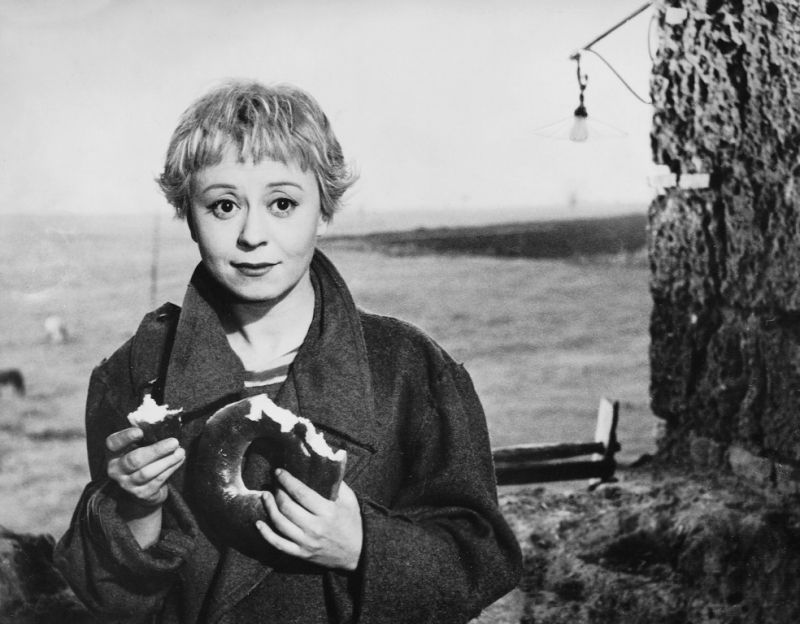


He teaches her some simple routines as they bowl along in his motorcycle-trailer-clowning and simple tunes on a cornet-to serve as a come-on to his pitifully corny act of breaking chains across his chest.Although her timorousness fades into happiness as they play villages, fairs and country weddings, her idyllic existence is broken when they join a small circus on the outskirts of Rome.

She is replacing her sister, who has died. A boorish and brutish strong man literally buys a happy but mentally incompetent lass from her impoverished mother to serve as his clown, cook and concubine. "La Strada" is a road well worth traveling.The story, let it be said at the outset, is, like its protagonists, simplicity itself. Suffice it to say that his study of his principals is honest and unadorned, strikingly realistic and yet genuinely tender and compassionate. Perhaps it is because Signor Fellini's theme offers neither a happy ending so dear to the hearts of escapists nor a clear-cut and shiningly hopeful plot. Like the principals, it wanders along a sad and sometimes comic path while accentuating man's loneliness and need for love.We have no idea why "La Strada," which won a prize at the 1954 Venice Film Festival, has not been exposed to American audiences until now. Like life itself, it is seemingly aimless, disjointed on occasion and full of truth and poetry. ALTHOUGH Federico Fellini's talents as a director have not been displayed to advantage heretofore in these parts, his "La Strada" ("The Road"), which arrived at the Fifty-second Street Trans-Lux yesterday, is a tribute both to him and the Italian neo-realistic school of film-making.His story of an itinerant strong man and the simpleminded girl who is his foil and helpmeet is a modern picaresque parable.


 0 kommentar(er)
0 kommentar(er)
